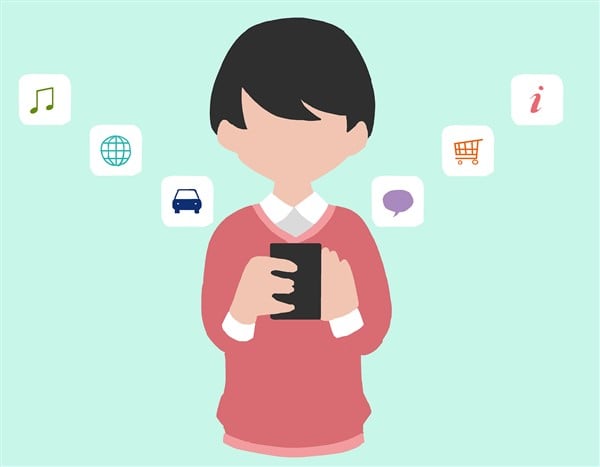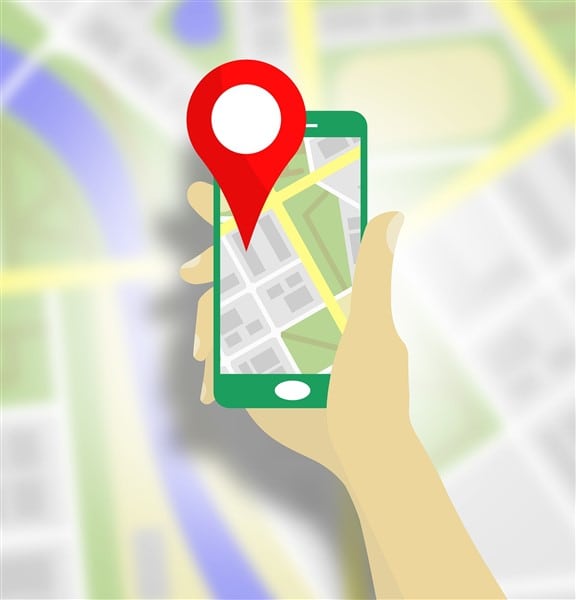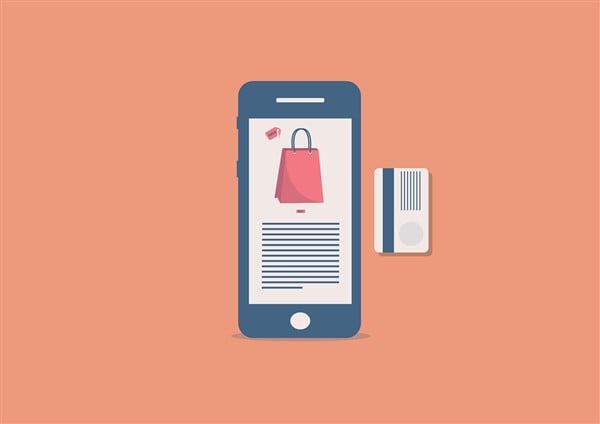Must-Have Phone Apps When Traveling in China
By Casey Burridge from Talking Mandarin
Feel free to skip ahead by clicking one the links below:

Wechat (微信) - Staying Connected in China
Undoubtedly the most important app to download when you arrive (or better yet, before you arrive) in China.
Why is Wechat so important you ask?
Along with being a handy tool to send and receive money, it’s also the number one way to stay connected in China. At its core, Wechat is a messaging app, like WhatsApp. However, what makes Wechat different is ‘Wechat moments’ – which is a Facebook newsfeed type vibe where you can view your contacts latest posts and photos. You can also make posts of your own which others can view, like and comment on.
When you make a new friend in China, instead of adding them on Facebook, you will add them on Wechat. Also expect to be put in a Wechat group with your colleagues to discuss work-related matters.
If you meet a nice girl/guy in China, you better have Wechat!
There are a lot of companies, shops, bars, clubs etc that have official Wechat accounts. You can follow these accounts and get notified of upcoming events, special offers and other things that may be of interest to you.
There are so many benefits to having Wechat in China, it’s hard to list them all.
Wechat Pay and Alipay – Mobile Payment in China:
Wechat Pay
Wechat pay is also really easy to setup. All you do is navigate to ‘Wallet’ by clicking ‘me’ and then ‘Wallet’, then go to ‘cards’ and then ‘add a card’. From there all you need to do is input the name associated with your account and your card number and you’re pretty much set! It has to be a Chinese card though of course. So, before you can set up Wechat pay, you’ll need to open up a bank account.
Once your card is linked with Wechat, you’ll be able to pay merchants by simply scanning a QR code. You will also have the ability to transfer and receive money over Wechat. When you receive money, it goes to your Wechat wallet first. From there, you can withdraw it into your bank account. Wechat charges a small withdrawal fee of 0.1%.
Once your WeChat wallet is setup, you’ll be able to pay for a host of other things through WeChat too, like topping up your mobile phone credit, booking flights and train tickets, ordering food for delivery and more! Some of these services are powered by third-party operators, though, so I can’t tell you exactly how they work. Feel free to have a look around though.
Alipay
Developed by the Alibaba group Alipay is currently the most widely used payment system is China. In fact, Alipay is the largest mobile payment platform in the world!
It is so popular and so widely used due to its fast and secure payment system which will never let you down. Just like Wechat pay, all you need to do is link your bank account to the app and away you go.
Alipay can be used to pay for anything from utility bills to a meal at a restaurant.
You may be wondering then what the difference is between Alipay and Wechat Pay? Well, the two are similar but there are a couple of key differences:
First, Alipay can be used on any device whereas Wechat Pay is for use on smart phones. Alipay also supports a large number of currencies compared to Wechat Pay. There are also some differences when it comes to the way each system handles transactions, but these are minor.
Meituan Waimai (美团外卖) - Food Delivery in China
Sometimes it’s handy to be able to order food online and have it delivered to your door. Let’s face it, if you’re in Beijing during winter time, it’s likely to be so cold outside that you just don’t want to leave your warm, cosy apartment.
Lucky for you, if you know how to use apps like 美团外卖 and 百度外卖, you won’t have to go anywhere to get a good meal!
Meituan Waimai, is an app I used a lot in Beijing. Basically, you download the app, input your address and the app will show you a list of restaurants nearby that you can order food from. Simply select one you like the look of, go through their menu, add stuff to your cart and when you’re done, you can pay for it (through WeChat/AliPay of). Once you’ve paid, a delivery guy will be dispatched to pick up your order and deliver it to you! Simple as that.
Not only is it convenient but it’s cheap as well.
Just make sure you have your address saved on your phone (in Chinese) so that you can input it into the app. Or, even easier, just ask someone to help you do it.
Baidu Maps and GaoDeDiTu – Traveling in China

Baidu Maps(百度地图)
Baidu Maps(百度地图) is basically the Chinese version of Google maps. This is a must have app and one that has helped me get out of many awkward situations.
It can be really daunting trying to find your way around a city/town in China but having Baidu Maps will help you to navigate your way around a bit easier. Just bear in mind that you will need to know some Chinese characters for it to be most useful as all place names are written in Chinese.
However, even if you don’t know how to read any Chinese, Baidu Maps can still be useful for helping find the nearest subway station, bus stop or bank. These are marked on the map with specific symbols and are easy to spot.
GaoDeDiTu (高德地图)
Is a free and very reliable. GaoDeDiTu is constantly kept up to date so you’ll be sure to get accurate directions from it too.
Pleco - Chinese Language Translation
Pleco is a useful app if you’re learning Chinese but it’s just as useful for basic survival in China.
Pleco is the ultimate Chinese dictionary app. Once you download it, you don’t need internet access to use it. It’s all offline.
Pleco is really useful for looking up unknown words and phrases. It can be used to translate Chinese to English or English to Chinese.
Pleco also supports a variety of input methods including pinyin, and handwriting input, which is helpful for those of us less skilled in the art of reading Hanzi.
DaZhongDianPing and Youku – Entertainment in China
DaZhongDianPing
DaZhongDianPing is great app, used extensively in China for browsing reviews, making reservations and finding great deals at restaurants, hotels, spas, bars etc. It’s basically a cross between Yelp and Groupon - You can get coupons and vouchers for all kinds of restaurants and other places.
DaZhongDianPing is a great app for finding fun new places to eat at as well so when you’re heading to a new restaurant, search them on the app first to make sure the reviews are good. If you’ve purchased a coupon through the app, all you need to do is show the waiter at the restaurant and they will be sure to factor it into your bill.
Youku (优酷) - Video Streaming App
You won’t be able to access YouTube in China (without a VPN anyway) so to get your daily dose of cute cat videos I’d suggest downloading the Youku.
Youku is basically the Chinese version of YouTube – it’s a video hosting and streaming website that gets over 800 million video views every single day.
While the vast majority of content on Youku is in Chinese, there are a lot of English videos on there too. You’re also likely to find English movies and TV series on there along with other, more niche channels devoted to entertainment. Give it a go!
TaoBao (淘宝) - Online Shopping in China

The most used platform for online shopping in China is, by far, Taobao is owned by Alibaba and has become one of the largest ecommerce platforms in the world.
Online shopping is huge in China. In fact, people in the big cities do most of their shopping online – bearing fruit, veg and meat which is typically bought fresh.
You see, online shopping in China is really convenient as delivery is cheap and fast and almost anything you could ever want is available for purchase online.
Taobao provides a platform for entrepreneurs and small businesses to run online stores selling items of all kinds to consumers located mainly in Mainland China, Hong Kong, Macau and Taiwan.
You can buy almost anything on Taobao! And that’s why so many people use it every day. The majority of products you’ll find on TaoBao are new and sold at a fixed price. However, it is possible for sellers to run an auction too.
Along with TaoBao, JingDong (京东) is another convenient online shopping platform. JingDong, or JD for short sells mostly electronics. Such as, Computers, laptops, mobile phone, tablets and more.
You may be interested to know that Jing Dong is also the world’s leaders in high-tech, autonomous (drone and AI powered) delivery systems! Pretty cool if you ask me.
Airpocalypse - Air Pollution App
If you’re going to be living in a big city such as Beijing or Shanghai and are health conscious, you’re probably going to want to have a way of keeping track of the air pollution levels.
Lucky enough there are some useful apps for this that will tell you the AQI (Air quality index) for the current day.
AQI is a scale of measuring air quality that goes from 0 to 500. An AQI value of between 0 and 50 is considered healthy and safe. However, an AQI value of over 300, let’s say, is considered rather hazardous.
While big efforts are being made in China to reduce and control air pollution in big cities, it is still a big problem. Because of this, it helps to be able to track the AQI so that you can better prepare when you go outdoors. If you see a high AQI value on a given day you know that you should probably wear your face mask, and if it’s seriously high for whatever reason (400-500), you probably just want to stay indoors altogether.
Ctrip and hostelworld.com - Booking flights and accommodation
Ctrip (携程)
Booking domestic flights, hotels and train tickets is probably best done through– China’s premiere provider of travel services.
Ctrip also owns Skyscanner, Tours4fun and Trip.com! Don’t worry, there’s an English version which allows for easy navigation and use for non-Chinese speaking users.
Hostelworld.com
If you’re travelling within China, then you can book cheap hotels and hostels through hostelworld.com. This isn’t an app, it’s a website but it’s a great place to browse affordable accommodation.
You may also like: